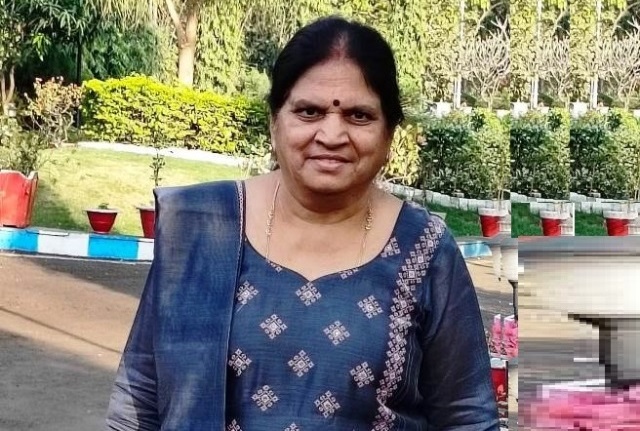Kumud Mishra, a senior citizen, shares her experience of falling victim to digital fraud and highlights the challenges faced by the aged in dealing with such crimes.
As a senior citizen, I like to believe that I am keeping up with the times, especially when it comes to adapting to new technology. From online shopping to UPI payments, the convenience these services offer has transformed our daily lives. However, this convenience also comes with big risks.
Last year, I returned from visiting my son in the US and had to head straight to Allahabad, my hometown, instead of going back to Bangalore, where I usually stay. One of my bags, containing phone chargers and essential cables, was still on its way. I decided to order some replacements on Amazon. While one order arrived on time, the other was delayed.
The next day, I received a call from someone claiming to be an Amazon delivery executive. He insisted he couldn’t locate my address, even though I assured him that deliveries regularly reached the said location without issues. But the man persisted, asking me to cancel the order and follow a link he would send to “help” resolve the issue money refund. Trusting him I clicked the link without hesitation.
That evening, I attended a family function and missed noticing multiple SMS alerts for ₹1 deductions from my bank account. The messages went unnoticed until the next morning when I saw an alert for a ₹10,000 deduction. I asked my husband if he had made any payments, and he replied in negative. Moments later, another message arrived; ₹90,000 had been withdrawn from our account.
This is when I sensed something was terribly wrong, and rushed to the bank. The manager told us that another ₹50,000 had just been deducted, and all routed to different accounts. Thankfully, he stopped further pilferage. We were then advised to report the incident to the cybercrime division. Today, more than a year has passed and the case remains unsolved, despite repeated follow-ups.
ALSO READ: Shabana Azmi Falls Prey To Online Payment Fraud
Losing such a significant sum pinches; these were the savings that we had worked hard to build over a lifetime. With everything moving towards digital—from shopping to bill payments to banking, we often have no choice but to interact with links, codes, and digital platforms. The line between a genuine transaction and a fraudulent one is so thin that it’s easy to fall prey, especially for senior citizens like us.
But what I find most appalling is the system’s inability to offer timely help. Banks and government agencies emphasise on awareness, but when a fraud happens, the victim has to prove their case, file complaints, and navigate the endless processes. Visiting police stations or bank branches repeatedly, only to hear that recovery is unlikely; all this takes a toll, physically, emotionally, and mentally.
While we have now become extra cautious after the incident, we continue to receive scam calls and messages, threats about disconnections, fake delivery notifications, or account deactivations. These fraudsters are highly sophisticated, leaving little room for suspicion until you are once bitten.
I believe the solution lies in more safeguards from banks and authorities. There must be advanced technology to detect and block fraudulent transactions in real-time. And, the burden of addressing such crimes shouldn’t fall entirely on victims, particularly those who may not be tech-savvy or able to follow through on lengthy complaint processes.
I know awareness is critical, but awareness alone isn’t enough. Fraudsters evolve faster than the system meant to counter them. It’s high time banks and regulators stepped up, not just with educational campaigns but with proactive measures to protect vulnerable populations.
For more details visit us: https://lokmarg.com/
As told to Mamta Sharma

